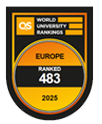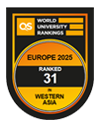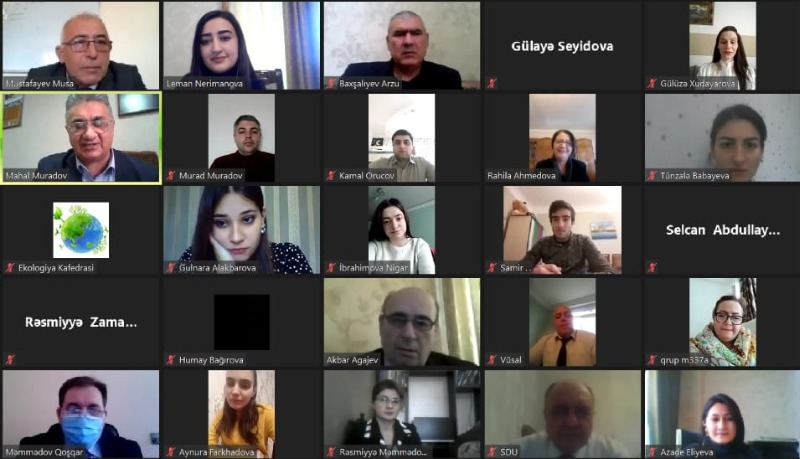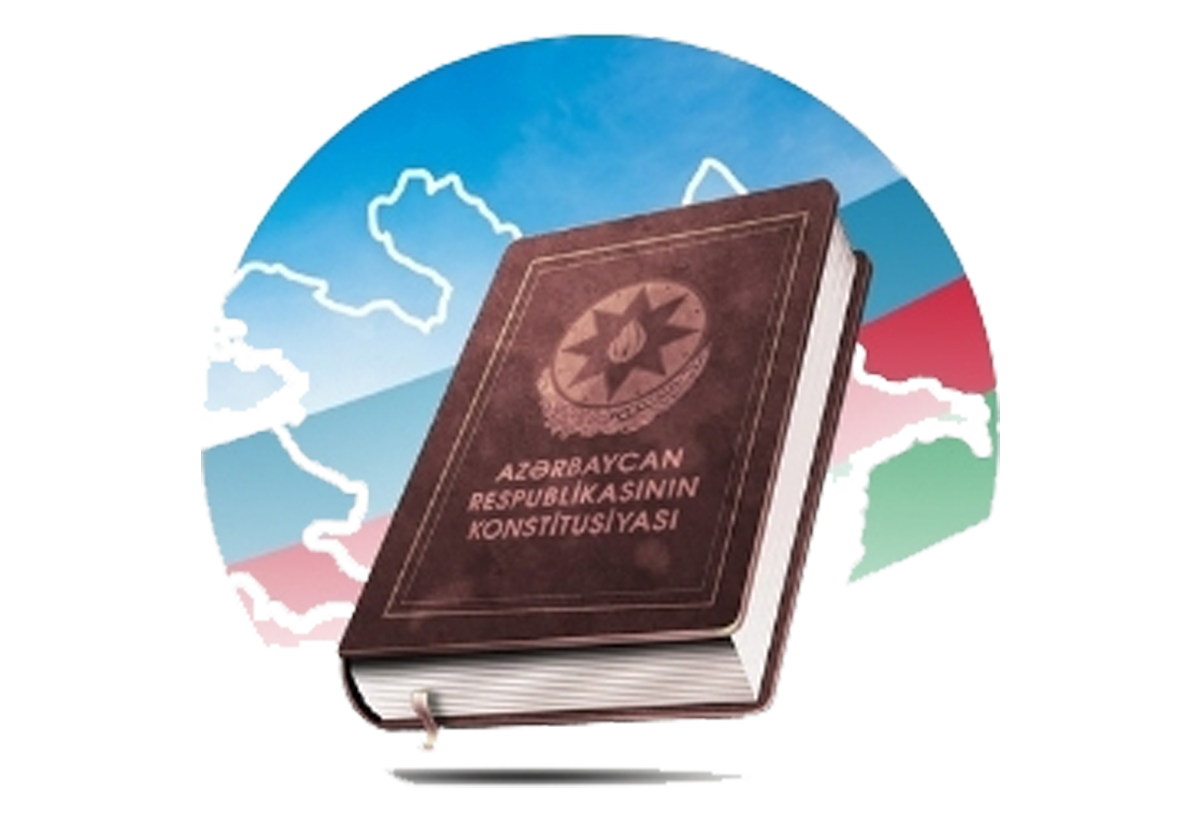A SCIENTIFIC-PRACTICAL WEBINAR ON "ENVIRONMENTAL TERRORISM IN AZERBAIJAN" AT SSU
On December 24, a scientific-practical webinar on "Environmental terror in Azerbaijan" was organized by the Department of Ecology of the Faculty of Chemistry and Biology.
The webinar was attended by Deputy Director for Scientific Affairs of the Institute of Soil Science and Agrochemistry of ANAS, Associate Professor of Azerbaijan University of Architecture and Construction, PhD on agr.sc. Goshgar Mammadov, Leading Consultant of Sumgayit Regional Department of Ecology and Natural Resources of the Ministry of Ecology and Natural Resources Vusal Ibrahimli, Executive Director of NGO "Healthy Environment, Healthy Future" Vusal Hatamov, staff and students of the Faculty of Chemistry and Biology of SSU.
Dean of the Faculty of Chemistry and Biology, Associate Professor Mahal Muradov congratulated the people of Azerbaijan on the victory of 44 days of war. He said that our holy war, which began on September 27 with a strong and rapid counter-offensive of our Victory Army against Armenian provocations, resulted in a great victory. Associate Professor Mahal Muradov also noted that Armenia not only occupied Azerbaijani lands, but also destroyed and plundered Azerbaijani lands, cultural heritage and natural resources. Armenia's policy of environmental terrorism against Azerbaijan is very diverse in terms of its nature and implementation mechanisms. Since 1988, all settlements, towns and villages in Nagorno-Karabakh and surrounding areas occupied by Armenians and their patrons have been destroyed, civilians have been displaced, and flora and fauna have been destroyed. Armenia is not only an aggressor state pursuing a policy of ethnic cleansing in the Caucasus region as a whole, but also a state that serves to carry out acts of environmental terrorism. Damage to the natural resources of the occupied territories and the environment has disturbed the ecological balance in the region. Hundreds of settlements were looted and destroyed by Armenians, water, electricity, gas and other communication lines were completely destroyed, railway lines were demolished and rendered useless. The damage caused to the ecology and natural resources of Azerbaijan as a result of the Armenian-Azerbaijani Nagorno-Karabakh conflict is enormous.
Head of the Department of Ecology, Associate Professor Rahila Ahmadova congratulated the participants on the great Victory. She said that President of the country, Supreme Commander-in-Chief Ilham Aliyev wrote a chronicle of the victory of our people in the Second Karabakh War, which began with a counter-offensive against Armenian military provocations on September 27 and ended with the surrender of the enemy on November 10. The liberation of Shusha, the crown of Karabakh, on November 8 by the brave Azerbaijani Army under the leadership of the President of the country gave our people great joy of victory. The head of state gave important messages about the atrocities committed by Armenian vandals in our lands, including the destruction and burning of houses and other civilian objects during the evacuation of Kalbajar and Agdam regions, and Armenia's international response to the environmental catastrophe. Associate Professor Rahila Ahmadova also noted that environmental terrorism is mainly characterized as the intentional or illegal destruction, exploitation or alteration of the environment during the conflict. The actions committed by Armenia in the territories of Azerbaijan over the past 30 years are environmental terrorism. This environmental terror against the regions of Azerbaijan began from the first days of the occupation of those territories. This is a violation of international conventions on ecology and the environment to which Armenia is a party, including the UN Convention on the Prohibition of the Use of Military or Any Other Hostile Methods of Environmental Change. According to experts, fires caused by white phosphorus bombs cannot be extinguished, nor can they be extinguished naturally, and such fires continue for a long time. This is environmental terrorism and should not be ignored by the international community. The purpose of the webinar is to inform the public about the environmental crimes committed by Armenian terrorists, the brutal exploitation of natural resources of our lands, to draw scientific attention to the topical issue.
At the webinar, Professor of the Department of Petrochemistry and Chemical Engineering Akbar Agayev greeted the webinar participants and spoke about the terrorist acts committed by Armenian terrorists in Azerbaijan during the Second Karabakh War, the aggression against the flora and fauna of Azerbaijan, especially about the very serious historical crimes of not supplying water to the surrounding regions of Karabakh, and severely polluting the water with chemicals, and gave valuable advice on how to eliminate these obstacles. Then Professor Akbar Agayev wished success to the webinar.
Then Jeyran Humbatova, a second-year student of the Faculty of Chemistry and Biology recited "Karabakh is eternal Azerbaijan!" poem in the webinar.
Masters majoring in environmental protection and efficient use of natural resources delivered report in the webinar: Kamal Orujov on "Environmental terrorism in Azerbaijan", Gulnara Alakbarova on "Use of white phosphorus weapons against Azerbaijan and damage to the environment", Laman Narimanova on "Environmental agenda", Aynura Farhadova on "Damage to rivers as a result of the war". They spoke about the environmental crimes committed by Armenian terrorists in the territory of Karabakh and other regions along the frontline, liberated by the victorious Azerbaijani Army and noted that $ 500 billion worth of natural resources and $ 32 billion worth of environmental damage were caused in the liberated territories of Azerbaijan. They said that 30 years of environmental terror ended with the liberation of the Azerbaijani village of Sugovushan. The Tartar River flows with abundant water. Armenia has always deliberately prevented the flow of water. Ecological balance will be ensured in Tartar, Goranboy and Yevlakh regions of Azerbaijan. The liberation of Sugovusha from the Armenian occupation on October 3, 2020 allowed to restore the regional eco-balance.
The webinar continued with a discussion of scientific reports. Numerous questions of students were answered during the discussions.
Translation: Linguistic Center



